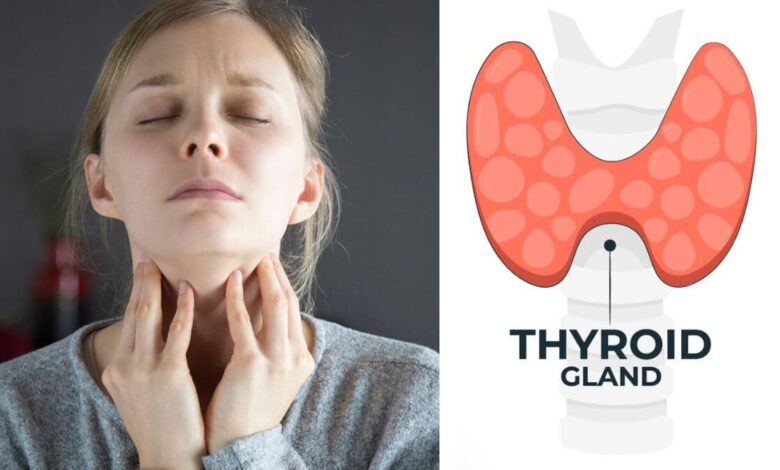the Thyroid Gland: Its Functions and Disorders

The thyroid gland is a small, butterfly-shaped gland located in the neck, just below the Adam’s apple. Despite its small size, the thyroid gland plays a crucial role in the body’s metabolism and overall health. In this article, we will discuss the thyroid gland’s functions, common disorders, and treatments.
Functions of the Thyroid Gland
The thyroid gland produces two primary hormones, thyroxine (T4) and triiodothyronine (T3). These hormones play a critical role in regulating the body’s metabolism, including the rate at which the body burns calories and the pace at which the heart beats.
The thyroid gland is also responsible for regulating the body’s calcium levels by producing calcitonin, which helps to maintain bone health and prevent osteoporosis.
Disorders of the Thyroid Gland
The thyroid gland can be affected by several disorders, including hypothyroidism, hyperthyroidism, and thyroid cancer.
Hypothyroidism occurs when the thyroid gland does not produce enough thyroid hormones. This condition can cause symptoms such as fatigue, weight gain, cold intolerance, and depression. Hypothyroidism is most commonly caused by an autoimmune condition called Hashimoto’s thyroiditis.
Hyperthyroidism, on the other hand, occurs when the thyroid gland produces too much thyroid hormone. Symptoms of hyperthyroidism include weight loss, increased heart rate, anxiety, and tremors. The most common cause of hyperthyroidism is an autoimmune condition called Graves’ disease.
Thyroid cancer is a rare but serious condition that occurs when abnormal cells in the thyroid gland grow and divide uncontrollably. Symptoms of thyroid cancer include a lump in the neck, difficulty swallowing, and hoarseness. Treatment for thyroid cancer typically involves surgery to remove the affected portion of the thyroid glandd, followed by radioactive iodine therapy to destroy any remaining cancer cells.
Treatment for Thyroid Disorders
The treatment for thyroid disorders depends on the specific condition and its severity. For hypothyroidism, treatment typically involves daily thyroid hormone replacement therapy, which can help to alleviate symptoms and restore normal hormone levels in the body.
Hyperthyroidism can be treated with medications such as beta-blockers, which can help to reduce symptoms such as increased heart rate and anxiety. In some cases, radioactive iodine therapy or surgery may be necessary to remove the affected portion of the thyroid gland.
Thyroid cancer is typically treated with surgery to remove the affected portion of the thyroid glandd, followed by radioactive iodine therapy to destroy any remaining cancer cells. In some cases, chemotherapy may also be necessary.
Preventing Thyroid Disorders
While some thyroid disorders are genetic and cannot be prevented, there are steps that individuals can take to reduce their risk of developing thyroid disorders.
Maintaining a healthy diet and regular exercise can help to promote overall health and reduce the risk of developing hypothyroidism and other conditions associated with obesity.
Individuals can also reduce their risk of developing hyperthyroidism and Graves’ disease by avoiding smoking and managing stress levels. Research has shown that smoking can increase the risk of developing thyroid disease, while stress can trigger autoimmune conditions such as Graves’ disease.
Conclusion
The thyroid gland plays a critical role in regulating the body’s metabolism and overall health. Disorders of the thyroid glandd can lead to a range of symptoms and health complications, including weight gain, heart disease, and cancer.
Fortunately, with proper diagnosis and treatment, many thyroid disorders can be effectively managed, allowing individuals to lead healthy, active lives. If you are experiencing symptoms of a thyroid disorder, it is important to speak with your healthcare provider to receive an accurate diagnosis and appropriate treatment.



